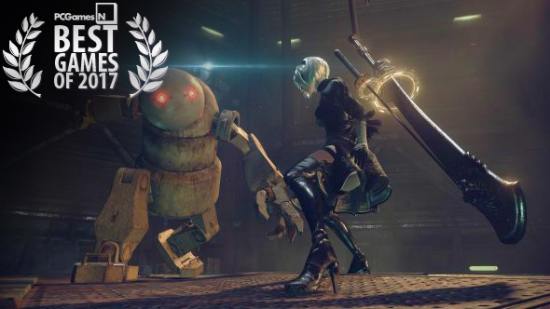I often find myself asking ‘what is there left to be said?’ when I sit down to write a game of the year entry. While Nier: Automata is one of the most popular and discussed games of the year, the elements that make it my favourite remain mysterious to anyone that hasn’t played it. It is that rarest of games that not only starts good, but steadily and without fault, gets better as you go, peaking with its ridiculous finalé that could only ever happen in a Yoko Taro game.
Is it possible that other games this year were good as well? Yes, says Ali, about Life is Strange: Before the Storm.
Beyond the narrative, which is an all-timer – but both impossible to not spoil and hotly debated year-round – it is imaginative and inventive in game mechanics as well. It experiments everywhere, from deep character customisation to individual fights with special rules, to simply how the camera is positioned or sometimes transitioning so the game plays closer to the two-tone bullet hell of Ikaruga than the swordplay of Devil May Cry. Nier: Automata is determined to keep you entertained, and never lets up.
Simply having a brilliant story and varied gameplay would be notable, but everything surrounding that is also of the highest quality. Automata is a gorgeous game, packing its relatively small open world with weird locales that stretch from a full amusement park to a ruined desert, then a castle and the catacombs beneath. Each is unique, maintaining only the post-post-apocalyptic style that haunts the whole experience with melancholy.
Perhaps most important is the emotional, vocalised soundtrack. While it blends with the world and enemy design to make exploration and boss fights more enjoyable, at softer moments is where it really shines. Giving androids and battle robots interesting, sympathetic personalities is as important to Automata’s triumph as the combat engine. It is a game about depression and sadness and, eventually, if only quietly, hope – it simply would not work without the music.
While it is not perfect at all it attempts, Automata experiments more with everything it touches than anything else I played this year. It will stand the test of time, and has made me a lifelong fan of a game director in that rare way only the Japanese manage. I will play every Yoko Taro game from now until the end of all things, and if they are even half as good as Automata they will be worth the investment.
